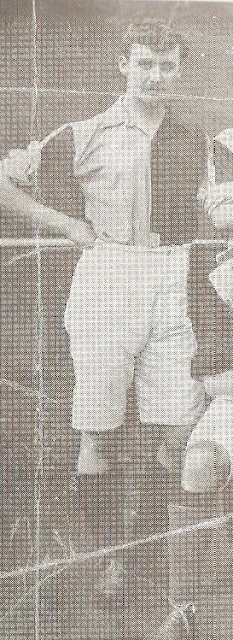Louis Bookman was born in Lithuania, which at the time was a part of the Russian empire. His family name was Buckhalter and his father was a rabbi. In 1895, when Louis was 5, his family left Lithuania in order to escape anti semitism. (Between 1860 and 1914 20% of the population left the region).
The Buckhalters settled in Dublin and anglicized their name to Bookman. Louis first played football for Dublin Adelaide- a club based in the city's Jewish community.
Having begun his senior career with Belfast Celtic in 1911 Bookman, who played as a winger, joined FA Cup holders Bradford City.
It took Bookman a couple of seasons to establish himself, but he made 20 appearances in the 1913-14 season. His Ireland debut came in a 2-1 win over Wales on 19th January 1914. He won a further 3 international caps 7 years later.
Bookman joined West Bromwich Albion for the 1914-15 season, but when the war brought a halt to domestic football he returned to Ireland, playing for Shelbourne and Glentoran.
The post war era saw Bookman in the lower leagues with Luton Town (3rd Division South, 1920-22) and Port Vale (Division 2, 1923-24). He finished his playing days back in Ireland with Shelbourne.
In English football Bookman made a total of 138 first team appearances, scoring 8 goals.





